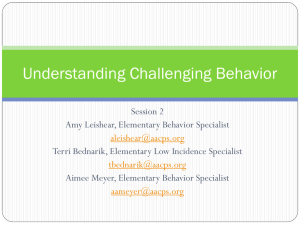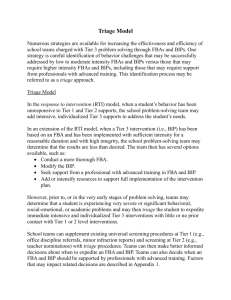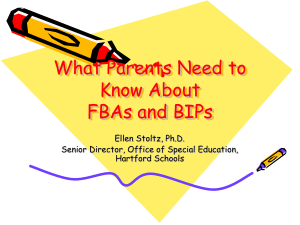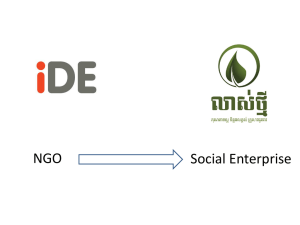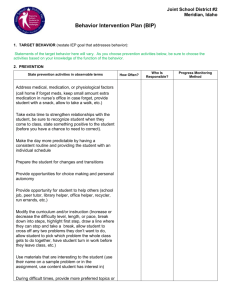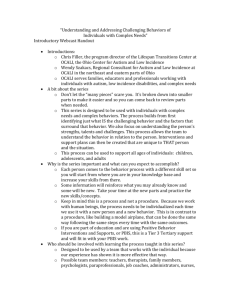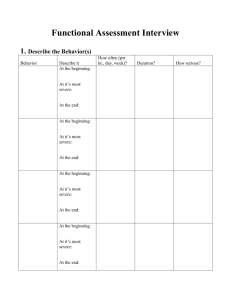File - School Counselors Connect
advertisement
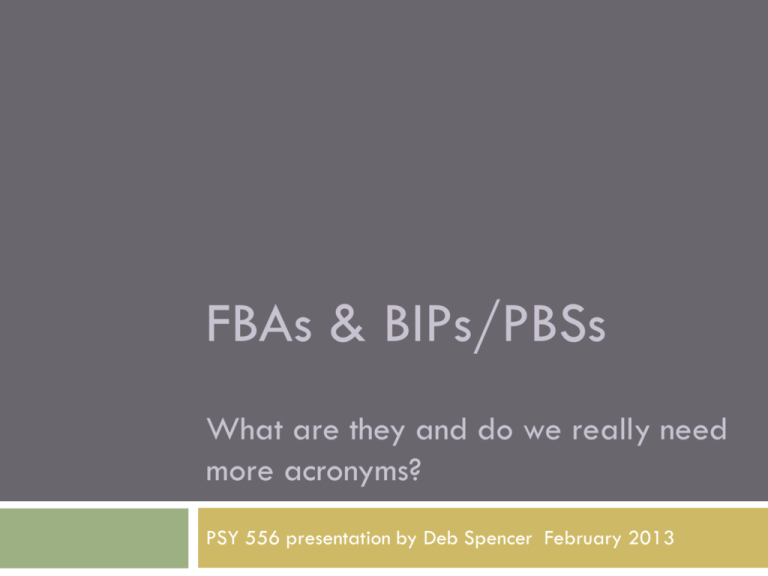
FBAs & BIPs/PBSs What are they and do we really need more acronyms? PSY 556 presentation by Deb Spencer February 2013 Let’s look at what we know… On your 3x5 card answer some/all of the following questions: What do you know about Functional Behavior Assessments and Behavior Intervention Plans? When might these be useful in a school setting; when are they required? What are the A-B-Cs of FBAs? How do these relate to me as a future school counselor? Presentation Objectives 1. 2. 3. 4. Understand what FBAs and BIPs are, how they work, and how they may be useful to you. Break down the steps to behavior assessments and intervention planning. Practice using the steps and discuss modifications. Generalize learning to your school counseling internship. Functional Behavior Assessments & Behavior Intervention Plans History Research Definitions A Little Bit of History FBAs were initially used with developmentally delayed populations – observable behaviors FBAs were included in the reauthorization of IDEA in 1997 to address problem behaviors of students with IEPs; any type of disability + problem behavior qualifies They became more widely used for non-sped students with behavior problems Research base lagged behind widespread use The model has been integrated into the PBIS system What the research says… Teachers most common request for support is for challenging student behavior FBAs/BIPs have been shown to be effective at reducing challenging behaviors They have been shown to increase on-task behaviors What is a Functional Behavior Assessment? A way to address challenging behavior (measureable and observable) REFRAME: Problem Signal Way to alter the environment to decrease challenging behaviors Takes MANY forms from VERY complex and lengthy to more streamlined Framework used by a team to address challenging behaviors http://support4teachers.com/functional-behaviorassesment.html The ABCs of FBAs Common thread throughout various models: Antecedent Behavior Consequences What happened before? Observable/Measurable What is the payoff? Peer conflict Bothering classmates Gain desired object Homework not complete Blurting Avoid difficult tasks Hunger/Lack of Sleep Using inappropriate language Avoid peer conflict Routine Change Out of seat Gain desired activity Correction/failure Fighting Attention from adult Engaged in task Tantrum Attention from peers Steps to an FBA/BIP 1. Understand the challenging behavior 2. Create a hypothesis – ABC – what is the FUNCTION (reason) for the behavior? 3. Design an effective intervention Behavior Intervention Plan (BIP) 4. Monitor and evaluate the intervention What is a Behavior Intervention Plan? BIP = Positive Behavior Support (PBS) = Behavior Support Plan (BSP) Designed by a team Starts with the FBA hypothesis then creates an intervention to alter challenging behavior Teach new skills/behaviors Prevent problem behaviors (environmental changes) Addresses function (payoff) of problem behavior Who is on the Team? Classroom Teacher(s) Parent School Psychologist Special Education Teacher School Counselor Behavior Interventionist??? How does this fit in with PBIS? FBAs are used only for Tier 3 interventions FBAs and BIPs are data driven PBIS programs generally include templates for FBAs Check In Questions? Thoughts? Comments? Confusion? Let’s Dig In! How are these tools actually being used? Discussion – What have you seen at your site? - Theory vs. Reality A Model for FBAs/BIPs Samples of FBAs Samples of BIPs Samples of Monitoring Tools Let’s have some fun! Identify the Antecedents, Behavior, and Consequence in the following scenarios: Puzzling behavior activity Let’s go to Walmart http://www.youtube.com/watch?v=5IM1p-Tn-jA A situation at your site? Let’s work through the steps… 1. Understand the challenging behavior 2. Create a hypothesis – ABC – what is the FUNCTION (reason) for the behavior? 3. Design an effective intervention Behavior Intervention Plan (BIP) 4. Monitor and evaluate the intervention Web Resources http://support4teachers.com/functional-behaviorassesment.html A simple description of an FBA http://www.pbis.org/ Evaluation/evaluation tools http://cecp.air.org/default.asp MiniWeb FBA Wrap Up Re-read your cards. What questions do you still have? What have you learned? How might this be useful in your career as a school counselor?
